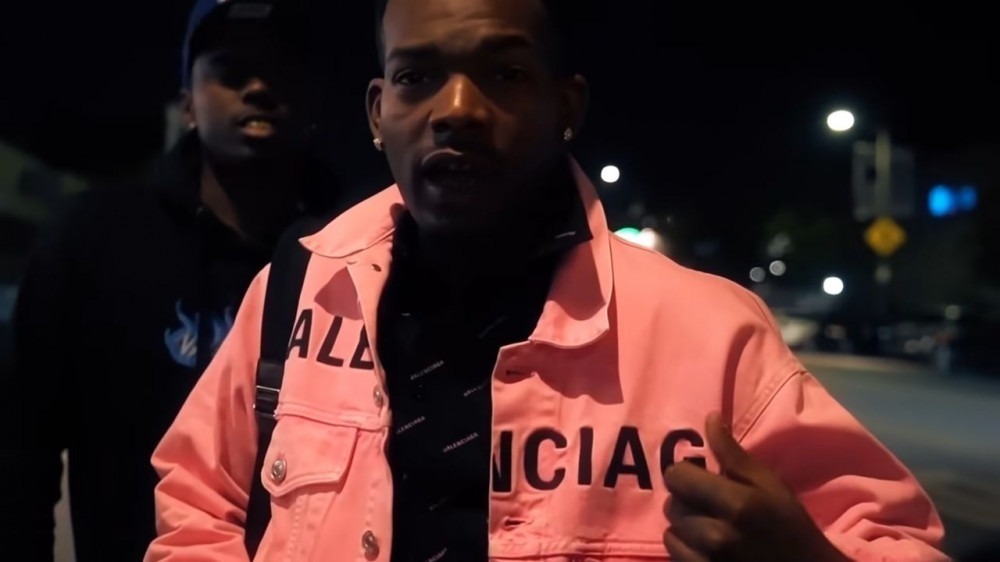
Los Angeles rapper Nuke Bizzle has agreed to plead guilty to one count of mail fraud and one count of unlawful possession of a firearm and ammunition by a convicted felon. Bizzle boasted in a YouTube music video about a scheme to allegedly steal unemployment benefits.

129 Views
Comments Off on L.A. Rapper Pleads Guilty To Pandemic Fraud
The Scheme
The LA Times reported that 33-year-old Los Angeles rapper Nuke Bizzle, whose real name is Fontrell Antonio Baines, has agreed to plead guilty to one count of mail fraud and one count of unlawful possession of a firearm and ammunition by a convicted felon.
On Wednesday, he also agreed to plead guilty to charges of fraud of more than $1.2 million in Pandemic Unemployment Assistance.
According to a plea agreement from the LA Times, Baines had used a series of stolen identities to fund his lifestyle in the Hollywood Hills from July 2020 to September 2020. Allegedly, he exploited the Pandemic Unemployment Assistance provision of the CARES Act, designed to expand access to unemployment benefits to self-employed workers, independent contractors, and others who would not have been considered eligible, according to the affidavit filed with the criminal charges.
Baines can face up to 20 years in prison for mail fraud and ten years behind bars for firearms and ammunition possession.
Initially, he was charged with three felonies: access device fraud, aggravated identity theft, and interstate transportation of stolen property. If the rapper was to be convicted of all charges, he could face the statutory maximum sentence of 22 years in federal prison.
In the music video “EDD,” which is a reference to California Employment Development Department, Nuke Bizzle rapped about doing “my swagger for EDD” while he held up a stack of envelopes presumably from the agency. He implied he was getting rich by “go[ing] to the bank with a stack of these.”
Investigators then alleged the scene was a reference to the debit cards mailed to recipients of unemployment insurance. A second rapper in the video rapped, “You gotta sell cocaine, I just file a claim.”
Memphis, Tennessee native Baines was taken into custody by Las Vegas police while a passenger in a speeding Cadillac Escalade in 2020. According to the affidavit, he then consented to a search.
The rapper was arrested by Las Vegas Metro police in possession of eight EDD debit cards with seven different names without the owners’ consent, as written in the affidavit. The affidavit said that $49,734 was also found under the third row of seats where Baines was seated.
Baines pleaded not guilty to charges related to the arrest and was released on bond.
Prosecutors alleged that at least 92 debit cards were “pre-loaded with $1.2 million in fraudulently obtained benefits” and had been mailed to addresses associated with the rapper on the video for “EDD.”
The alleged debit cards were issued in the names of third parties; these also included identity theft victims in the affidavit states.
It was also alleged by prosecutors the applications for these debit cards listed addresses were also alleged prosecutors that Baines had access to in both Beverly Hills and Koreatown.
to more than $704,000 of these benefits through cash withdrawals, prosecutors alleged, with some of the money being retrieved in Las Vegas.
Baines also admitted to being a felon in possession of a semiautomatic pistol with 14 rounds at his Hollywood Hills home with the agreement to forfeiture of more than $56,000 in cash seized by federal agents as part of the plea.
Baines’ video disclaimed: “This video was created with props and was made for entertainment purposes.”
Kevin Liles Launches Petition Against The Use Of Rap Lyrics For Evidence As The YSL Indictment Continues
Kevin Liles launched a petition on Change.org, calling on fans to help protect hip-hop and lyrics from law courts. So far, the petition has gained over 3,000 signatures.
The petition, titled “Rap Music on Trial: Protect Black Art,” mentioned how prosecutors have used hip-hop lyrics to gain convictions.
